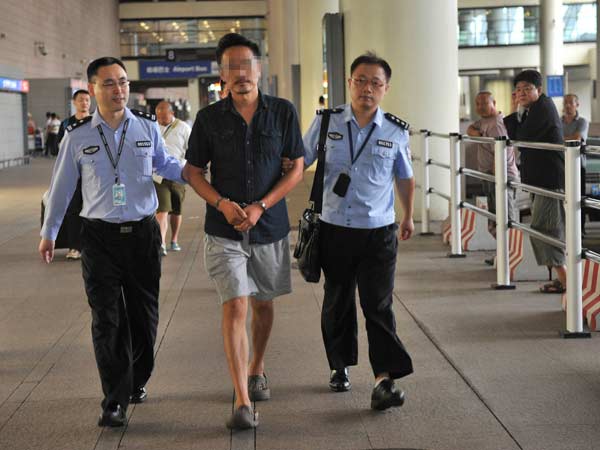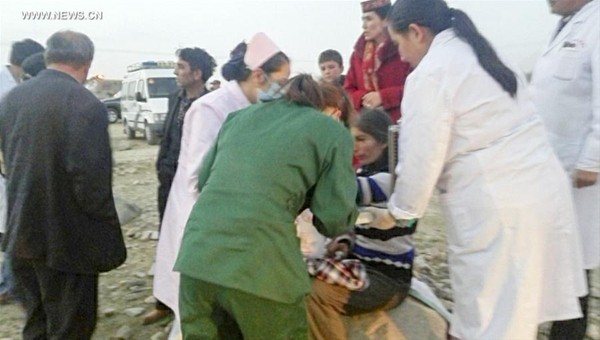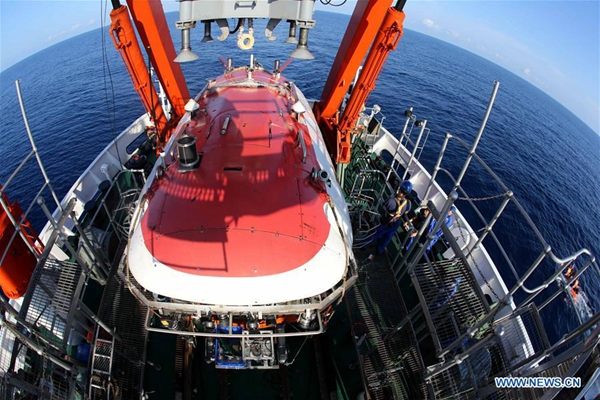|

|
|
An unidentified fugitive returns from Indonesia to China. [Photo/Xinhua]
|
China Wednesday released an update on the cases of 40 corruption fugitives on the Interpol red list who have either voluntarily returned or been extradited to China, including two spared from prosecution.
As of Monday, 15 returnees had already been sentenced to terms of up to life in prison, according to a statement from the office in charge of fugitive repatriation and asset recovery under the central anti-corruption coordination group.
The cases of another nine fugitives have been accepted by courts, but no sentence has yet been given.
Another 13 cases are still under investigation or awaiting review, including the case of Yang Xiuzhu, the No. 1 most wanted on the red notice list, according to the office.
One case was withdrawn in late 2015 after prosecutors confirmed the death of the suspect, Gu Zhenfang, in Thailand.
Among the 15 fugitives already convicted is Li Huabo, a former local finance official in east China’s Jiangxi Province, who was sentenced to life imprisonment in January.
Li’s illicit gains worth 4.83 million yuan (700,000 U.S. dollars) were returned and 5.5 million Singapore dollars (4 million U.S. dollars) was confiscated.
Li, who fled the country in January 2011, remained in Singapore until he was repatriated in May 2015.
In a separate case, Fu Yaobo and Zhang Qingzhao were sentenced to life imprisonment for bribery and embezzlement in August last year.
Zhang Dawei was exempted from criminal prosecution in November 2016 because Zhang had confessed his crime and returned all his illegal gains voluntarily.
Two of the fugitives, Zhu Zhenyu and Zhang Liping, were spared prosecution because Zhu was an accessary to the crime and turned himself in voluntarily, while Zhang’s offense involving falsifying value added tax invoices was minor.
The handling of these cases reflects China’s policy for the fugitive hunt, namely offering leniency to those who voluntarily return to China while meting out harsh penalties for those who are brought to justice after being arrested, the statement said.
The Interpol red notice of 100 Chinese corruption fugitives was released in April 2015.
As a move to close a loophole in China’s renewed anti-corruption drive, which in the past mainly targeted domestic corruption and left out those who have fled the country, China has launched operations such as “Sky Net” and “Fox Hunt” in recent years, focusing mainly on corruption fugitives and assets recovery overseas.


